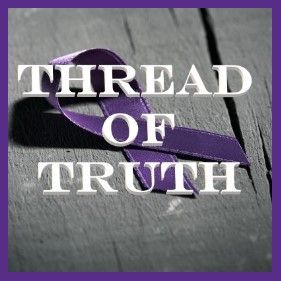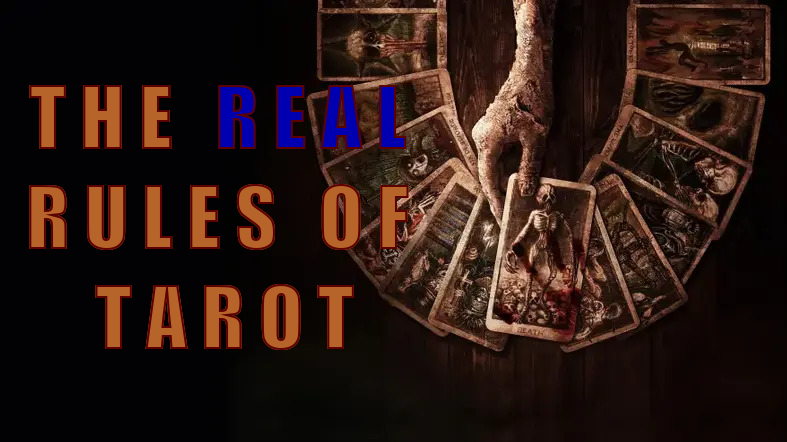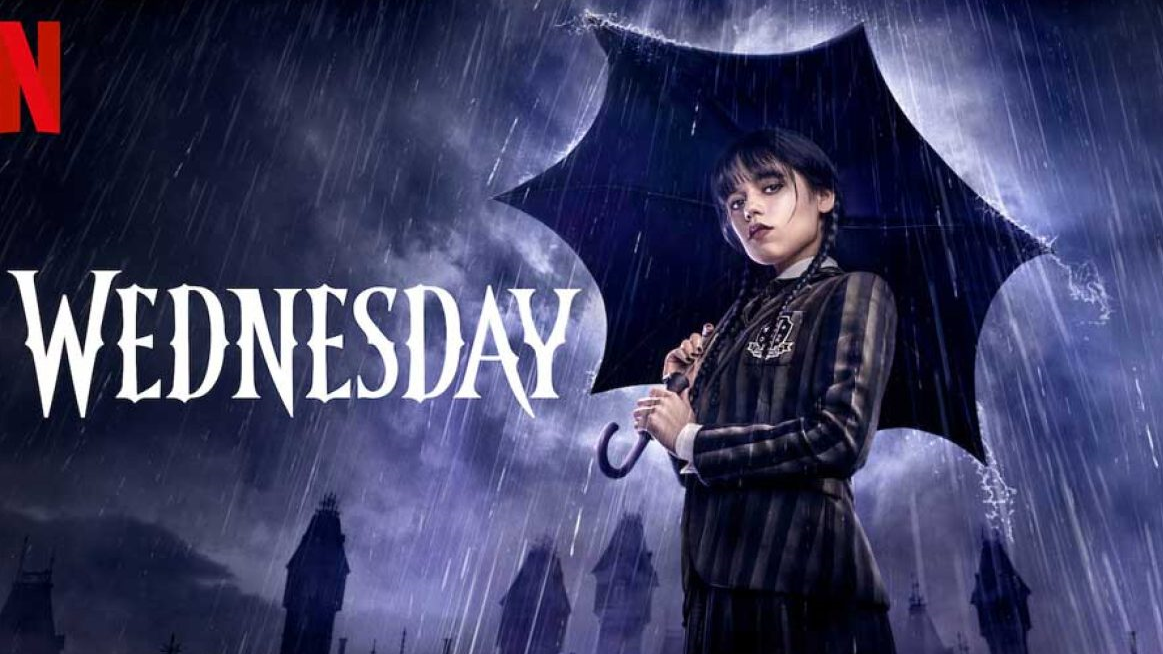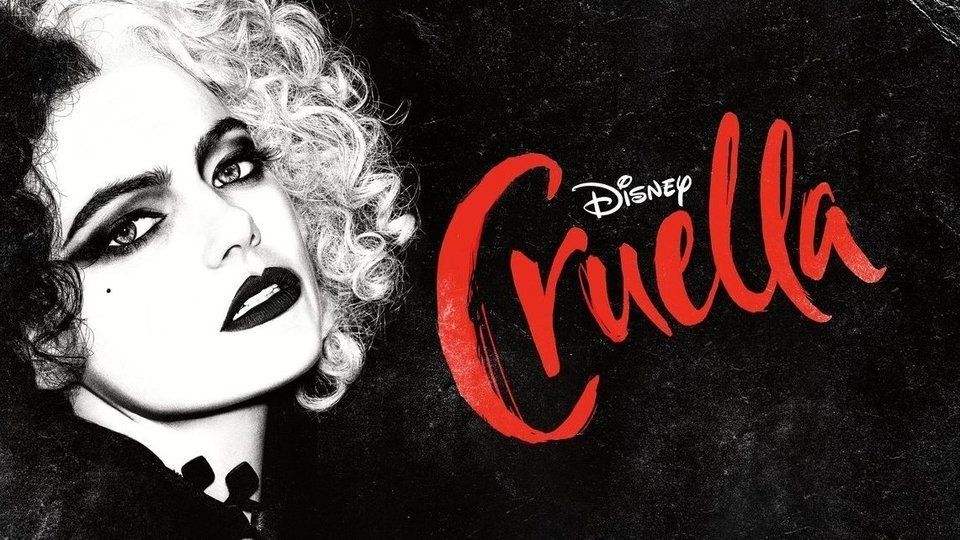NETFLIX GIVES EDGAR ALLEN POE A MODERN TWIST.
WHO IS VERNA? THE DEVIL OR DEATH?
"The Fall of the House of Usher" is by far one of the most enthralling miniseries of Netflix history. Given the reckless volume of content this particular streaming service likes to put out, it's hard to find the gem amongst all the grey rocks. Well, here it is. Creator Mike Flanagan strings together eight/nine of Edgar Allen Poe's dark stories into a dark and brutally honest commentary on life, money, and corruption in modern America. Given the events of 2025 so far, it's more important than ever to address the overall theme of the show.
First, we must answer the question pressing on the minds of every member of the Usher family: who is Verna?
Is she the devil? She certainly makes deals like one. She lies like Satan, claiming that souls, Heaven, and Hell don't exist. Anything to keep Salvation away from God's children. She references coming "up top" as if admitting she resides in Hell, even though Satan actually wanders the Earth and has been this whole time. Only after Judgement will he be banished to Hell, and he'll be no king. He'll be punished like the rest of the unrepentant sinners. Satan doesn't exist outside our realm, in Heaven or Hell, or "outside Time and Space." He's right here, right now. Dominating the Earth while he can before Judgment Day; before he faces judgement just like the rest of us. Verna cannot be the Devil. She's honestly too smart for that. The Devil is more likely a client of hers.
Verna, on the other hand, works with purpose and authority. She's no wanderer. She speaks with direct, objective terms. Aside from the aforementioned lie and her many aliases, she is brutally honest (in a way that matters). She has one goal: collect. In fact, she's obsessed with body counts. The higher, the better. This is why she makes deals with specific kinds of people. In Madeline Usher’s case, a downright sociopath and her corruptible sheep of a brother. That's where the recruiting comes in. One of Verna's many abilities is to see the potential in young people, but not for the better. When presented with the proper circumstances, certain people's paths can become lethal. Those are the kinds of people Verna targets. She offers them unlimited wealth and immunity. In return, they give her bodies. As many bodies as she can possibly collect. That immunity allows them to live to their fullest potential in service to her. To Death. Much like Rio in "Agatha All Along", Verna is Death.
Arthur Pimm meets her. Even the Usher family's level-head lawyer/assassin acknowledges her divinity. On the infamous excursion that leads to death and possible cannibalism, more privileged and wealthy people embark on a death-filled crusade with zero accountability. Verna is there. Pimm sees her and into the world's truth. The confesses that the world is hollow. Underneath the Earth's surface ("outside time and space") is where divine beings dwell. Including Verna. Including Death. Pimm never makes a deal with her, even in the end, but he sees her. He knows the truth behind her identity and purpose. So much so, he issues a warning to the Usher children about their future gruesome fate. Perhaps, he believes he can help the children avoid it. It's a valiant, if not hopeless effort. In the end, his witness of two separate blood baths set forth by Death is enough for him to reject any offer she must make. Consequences catch up with Arthur Pimm, but he accepts them with a clean conscious.
Where human justice fails, the divine eventually intercedes. (Deuteronomy 32:35)
What kind of world have we become? Who are we as a people where the violent, gruesome death of an entire family serves as satisfying justice for the rest of us? For some, the most powerful and corrupt, Death may be the only answer. But Verna is not Justice. She would be a separate entity all together. Death takes what she creates. Her deal with the Usher twins begins with one murder, and it ends with slaughter. Millions of lives taken. She doesn't just admire killers; she feeds off their kills.
Justice is served (C. Auguste Dupin).
Judgement comes (Annabel Lee).
Death claims us all. Not even the richest and most powerful people are immune.
Death is the only force in the world immune to power, money, and corruption. She doesn't take bribes, she's immune to gaslighting, she scoffs at politics, and she doesn't discriminate. In the end, she comes for us all, and that shouldn't be frightening to those of us with nothing to fear. However, she certainly strikes fear into the hearts of the most corrupt people, the ones who resist her. The ones who would trade their soul for so many more in exchange for a little more time. The real question is, what do they do with the time they have? Change the world? I don't think so. They, like all flawed humans, become lazy in their complacency. Their dangerous lethal drug made them wealthy beyond their wildest dreams. That kind of money kills our drive for productivity. We are at our most creative and productive only when we feel the most uncomfortable in our lives.
Necessity is the key to invention. Verna's offer kills that necessity and, therefore, the invention. Their original goals only come back into play after it's their turn to die. Rod is diagnosed with a deadly disease. For the first time in decades, the Ushers feel necessity again. 'Changing the world’ comes too little too late. Computer algorithms, medical technology, even naturopathic wellness. All of these goals are noble. In the right hands, they could absolutely change the world for the better. In the wrong hands, in Usher hands, they never materialize. Noble goals don't pay. At least not the way lethal, addictive drugs do. This entire series is an illustration of greed and complacency at its worst, and Death weaponizes it to her benefit. She is a reasonable genius.
THE CAREFULLY CHOSEN SURVIVORS
Death is not a serial killer. She doesn't take pleasure in taking so many lives. It's her job. With it comes responsibility. Her job is to preserve balance. With the lives lost, lives are also saved or spared. As stated in several other stories, franchises, and lore, Death provides a sacred balance. She is "the natural order of all things." From death comes life. That life springs from the Usher Family survivors. The spouses and significant others are close enough to the Usher family to understand its corruption, but they chose to enjoy the benefits of its influence and power. They can't enjoy it forever. When Death comes for the bloodline, the significant others need not always apply.
Granted, there are a couple unlucky ones who survive the massacre. Alessandra Ruiz is murdered for daring to stand up for what's right. Her ethics come late, but better late than never. Annabel Lee succumbs to her grief over the loss of her children's souls. She also stands up for her convictions, and she loses. Yet, she dies with absolute integrity intact. Most of them are lucky enough to at least make a clean break, and they do. These exes are capable and independent people with shiny spines. They can walk away without consequence and move on with their lives.
The true survivors, however, are the ones who counteract Usher Family legacy. They take the trauma from grief, greed, and narcissism, and they turn it into purpose. Real purpose. Good purpose. Change-the-world purpose. Throughout the series' extensive number of flashbacks, the Usher twins make a considered point that their greatest wish is to "change the world." But they fail to specify whether that change is for the better or worse. Their change is certainly for the worse. Their 'innovative' drug takes millions of lives and ruins even more. In order for Verna to provide balance to their devastating "changes”, the time comes for someone to step up and save lives in return. Millions of lives saved for millions of lives lost.
Enter Juno and Morella Usher. Their mere survival is miraculous. So much so that Verna must be involved. She doesn't just allow them to survive the Fall of the House of Usher. No. She chooses them to move forward because their survival makes them strong. Their experiences with the abuse motivate them to help others instead of hurting them. The Usher twins use their trauma to hurt people, while their victims use their trauma to help. Their efforts don't undo the damage caused by their abusers, but it breaks the cycle. The corruption is wiped away before it has time to infect the survivors, and the survivors must seize their opportunity to take over at the right time.
That's exactly what Verna allows. Two survivors rise from the ashes of her slaughter, and those survivors bring balance through the lives they save. She prunes the rotten, corruptible souls in order for good seeds/advocates for LIFE to thrive.
Death has an incredible gift to look into people's souls and see their potential, and she chooses these people to serve her purpose. Particularly killers and saviors. It's evident in the way Verna studies people. While her speeches are eloquent and wise beyond years, her silence also speaks volumes. Her reactions to people when she sees them for the first time are telling. She sees the twins' potential for slaughter, but a single look at Morella stops Verna dead in her tracks. She sees Morella's potential for saving lives. In that moment, Verna marks her for life, even urges her to walk away from disaster so that she may survive to serve a higher purpose.
That is the true role of Death. That is sacred balance.



